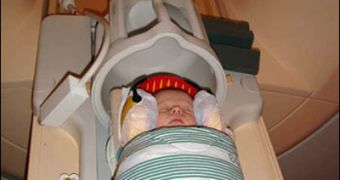A toddler may seem a little more than a vegetable. Even more when he/she is sleeping. But while the little baby is slightly snoring, in his/her brain there is a lot of activity, as found by a new research.
Other recent investigations had discovered in adult brains the existence of 10 so-called resting-state networks, neuronal clusters (made of neurons, brain cells) that remain "online" while an individual is in a resting state, but this is for the first time when the same phenomenon was encountered in resting babies.
"This study shows that there is an activity going on in the infant brain," said co-author Hugo Lagercrantz of the Astrid Lindgren Children's Hospital in Sweden.
The team of neuroscientists at the Karolinska Institute in Sweden scanned the brains of 12 sleeping babies for 10 minutes employing functional magnetic resonance imaging (fMRI), discovering five resting-state networks involved in spontaneous activity.
Just like in adult brains, the areas were connected with visual, motor and auditory processing, changing whole concepts about how the human brain develops, as less networks of neurons had been encountered in toddler brains compared with the adult ones.
"This confirms the concept that talking, singing and rocking the baby is not meaningless as earlier believed, but very good for the baby," co-author Peter Fransson told LiveScience.
"Now we have also shown there is a developmental aspect, that these networks perhaps gradually develop in the infant brain, or through adulthood and up," said Fransson.
In fact, it is already known that sleep strengthens learning and memory. Sleeping is the way the brain processes the amount of daily information. A good night's sleep can improve movement skills, playing a piece of music, riding a bike, or throwing a ball to the basket. Researches have proved that students should rather sleep than cram all night long when preparing for a final exam if they want to acquire the critical information.

 14 DAY TRIAL //
14 DAY TRIAL //